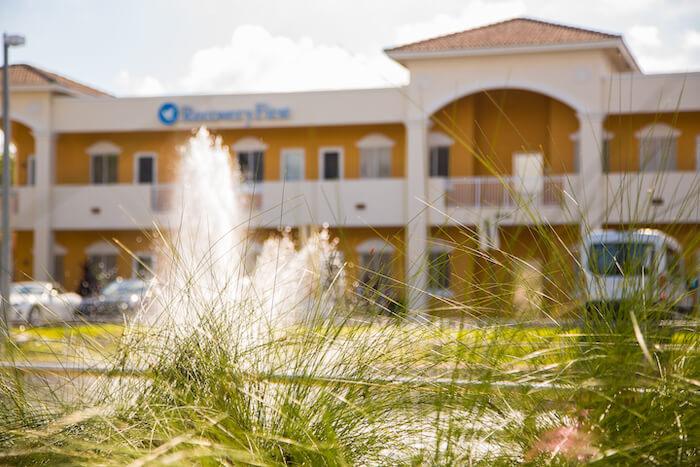
Drug and Alcohol Rehab Treatment in Fort Lauderdale, Florida
If you or someone you love is struggling with drug or alcohol misuse, there are a wide range of treatment options available in the Fort Lauderdale area that can help you recover. Medical professionals at a Fort Lauderdale rehab will generally assess your needs and provide you with a customized treatment plan to help you initiate your recovery from a substance use disorder.
This page will provide guidance on where and how you can access Fort Lauderdale inpatient rehab for substance use disorders and other occurring mental health conditions.
American Addiction Centers offers addiction treatment in Florida and many other locations across the United States. If you or a loved one are interested in substance abuse treatment in Florida or another location, call one of our admissions navigators to explore your options.
Where is Addiction Treatment Located in Fort Lauderdale, FL?
You can find several drug rehab facilities in the Fort Lauderdale area. Within a 25-mile radius of this city, there are a total of 102 different types of substance abuse treatment centers available.1.
AAC’s Recovery First Treatment Center is conveniently situated in the Miami-Ft. Lauderdale area, offering comprehensive treatment through various levels of care.
What is the Cost of Rehab in Fort Lauderdale, Florida?
Drug and alcohol rehab costs vary depending on several factors. The following issues will play a role in the total cost of rehab in Fort Lauderdale:
- Your payment method (self-pay, insurance, Medicaid or Medicare, financing, or another payment method).
- What type of insurance policy you have.
- Your insurance plan’s total out of pocket cost (such as your copayment and deductible).
- The level of care you’ll be participating in (such as detox, residential, intensive outpatient, or outpatient).
- Whether your chosen treatment center is considered a luxury rehab center.
- Whether you will travel a far distance to get to a drug rehab facility.
You can call the rehab facility that you plan to go to and ask them to give you a breakdown of the costs.
Can Insurance Cover the Cost of Rehab?
Many inpatient rehab centers in Fort Lauderdale accept private insurance payments, which can aid in covering the cost of a drug treatment program (and often cover the cost of rehab fully). In fact, a 2020 survey revealed that 76% of Florida substance abuse treatment centers accepted private insurance.2
In addition to accepting private insurance, many Fort Lauderdale drug rehabs take Medicaid (43%) and Medicare (31%).2
Under the Affordable Care Act (ACA), private marketplace health insurers must cover addiction treatment.3 They can’t deny someone treatment for substance use.3 However, the extent of coverage can vary based on the person’s policy-specific plan.
Can I Go to Rehab Without Insurance in Fort Lauderdale?
Yes. Many treatment centers have other payment options. These may include:
- Self-pay.
- Sliding scale pricing (i.e., the amount patients are charged is based on their income).
- Financing.
- Credit or debit cards.
What Services Are Provided by Fort Lauderdale Alcohol and Drug Rehab Centers?
At AAC’s Recovery First Treatment Center, patients can find a wide range of treatments. These different levels of treatment are designed to assist patients at the various stages of the journey to recovery. Some of these addiction treatment programs are as follows:
- Detox. Medical withdrawal management provides a 24/7, supervised environment where you can detox from your drug of choice safely and more comfortably. Nurses may provide certain medications to alleviate discomfort and ensure you are safe while detoxing, and they may check your vitals regularly throughout the process.
- Inpatient treatment program. In an inpatient residential program, you will have already gone through the withdrawal process if this was necessary for your treatment. Patients share a residential environment with others who are in treatment, and they attend therapy and engage in other therapeutic modalities throughout the day.
- Outpatient treatment. With outpatient treatment, patients visit the facility for treatment at pre-determined intervals while they continue to live at home.
Outpatient Treatment in Fort Lauderdale, FL
There are various levels of outpatient care that may be available to people seeking treatment in Fr. Lauderdale. These options include:
- Partial hospitalization program (PHP). Partial hospitalization programming is the most intense form and highest level of outpatient therapy. Patients attend PHP several hours a day to work on relapse prevention techniques and engage in other therapeutic interventions.
- Intensive outpatient program (IOP). In IOP, patients will meet 3 times a week and continue to work on understanding addiction so that they may be successful in the outside world.
- Standard outpatient care, which affords the most flexibility in treatment scheduling. Frequency and duration of clinical visits are determined according to the patient’s needs.
Why Choose American Addiction Centers?
Recovery First and other AAC treatment facilities offer individualized, evidence-based treatment that can help you or your loved one get sober and remain in long-term recovery. Our expert staff is equipped assist people from all demographics or with co-occurring health conditions.
Recovery First also offers a variety of targeted and specialized treatment programs for unique populations seeking substance use treatment. These include:
- Veterans and first responders’ program.
- Healthcare professionals program.
- Other specialized programs.
Call an admissions navigator to verify your insurance and start treatment today.
